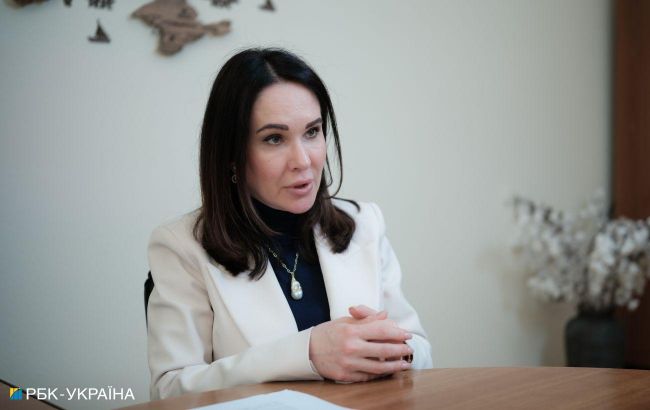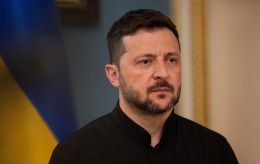Russian assets confiscation: Could it impact euro
 Photo: Iryna Mudra (Vitalii Nosach, RBC-Ukraine)
Photo: Iryna Mudra (Vitalii Nosach, RBC-Ukraine)
The idea that the confiscation of Russian assets in the EU will undermine the European currency is wrong, according to Deputy Head of the Presidential Office Iryna Mudra, who until recently served as Deputy Minister of Justice of Ukraine.
"When they say that this (confiscation - ed.) can undermine the euro as a currency, it is frankly not true. If the G7 - the issuers of major currencies - make a decision, these risks will be minimized, because there are no alternatives to these currencies," she says.
According to the Euroclear depository, 63% of the 191 billion euros stored there are in euros, 8% in US dollars, 16% in British pounds, 9% in Canadian dollars, and the remaining 4% in other currencies.
"This allows us to appeal to the arguments that have been made about the declining attractiveness of the euro as a currency in which reserves are kept. Therefore, in our opinion, because two-thirds of the total amount is kept in euros, the impact on this currency will not be as significant as they say," Mudra says.
Confiscation of Russian assets
On February 12, the European Union took an important step that will allow the transfer of profits from Russian frozen assets to Ukraine. The EU Council, in particular, decided that central securities depositories that hold assets of the Central Bank of the Russian Federation worth more than EUR 1 million should account for extraordinary cash balances accumulated as a result of EU restrictive measures separately and should keep the corresponding income separately. In addition, they are prohibited from disposing of the net profit.
Earlier, Ukraine's Foreign Minister Dmytro Kuleba expressed confidence that the EU would decide on Russian assets in 2024. At the end of February, Kuleba also noted that the assets of the Central Bank of the Russian Federation were frozen in various Western jurisdictions of more than $300 billion. Only the assets frozen in France would be enough, in particular, to build a new hydroelectric power plant to replace the Kakhovka one.

